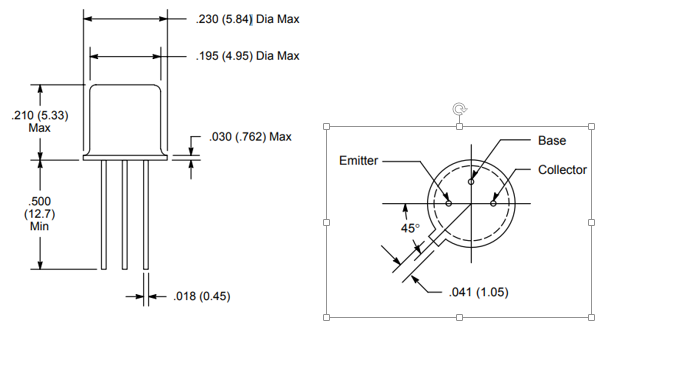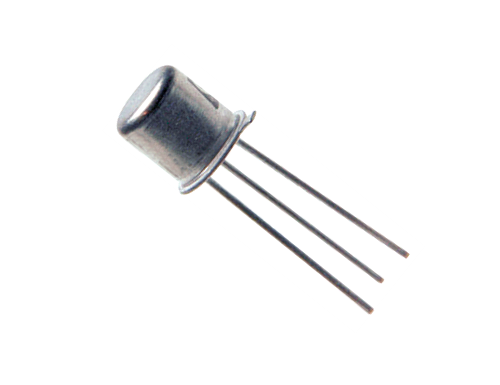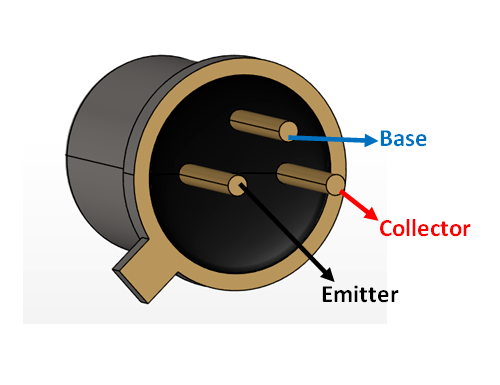NTE159M PNP Transistor
The NTE159M is a general purpose PNP transistor with a maximum gain of 300 and collector current of 600mA. It has a low collector saturation voltage of 1V and can be used in switching and amplifier circuits.
Pin Configuration
|
Pin Number |
Pin Name |
Description |
|
1 |
Base |
Controls the biasing of transistor, Used to turn ON or OFF the transistor |
|
2 |
Collector |
Current flows in through collector, normally connected to load |
|
3 |
Emitter |
Current Drains out through emitter, normally connected to ground |
Features
- General Purpose PNP Transistor
- DC Current Gain (hFE) 100 to 300
- Continuous Collector current (IC) is 600mA
- Collector-Emitter voltage (VCE) is 60 V
- Collector-Base voltage (VCB) is 60V
- Emitter Base Voltage (VBE) is 5V
- Available in To-18 Package
Note: Complete Technical Details can be found at the datasheet give at the end of this page.
Complementary NPN Transistor: NTE123A
Equivalent PNP Transistor: 2N2907, KST2907(SMD)
Other PNP Transistors: BC157, BC556, 2N3906, 2SA1943, BD140, S8550, TIP127, TIP42
Where to use NTE159M
The NTE159M is a general purpose PNP transistor that is available in TO-18 Package. The transistor has its complementary NPN version called the NTE123A, the datasheet of both can be found below. Since these form a complementary pair they can used in designs where both a NPN and PNP transistor or same characteristics is required. Push-Pull circuits, Class B amplifiers, H-bridge circuits are few examples circuits in which a complementary transistor is required.
The NTE159M has a low collector saturation Voltage of 1V and a can switch at high frequencies making it suitable for amplifier designs. You can also check out the 2N2907 transistor if you are looking for an alternate package for this NTE159M transistor, the 2N2907 is available in standard TO-92 package as well.
Applications
- General purpose switching
- Class B amplifier designs
- H-bridge circuits
- Push-Pull configuration circuits
- Medium-speed switching
- High frequency amplifiers
2D-Model
2D dimensions will help you in placing this component at the time of making circuit on perf board or a PCB.











